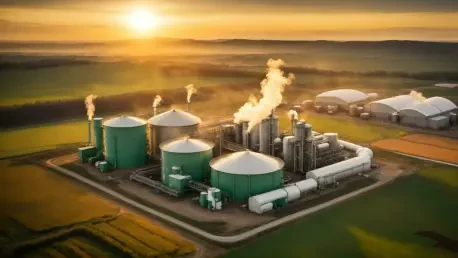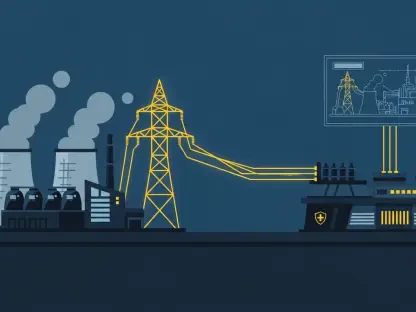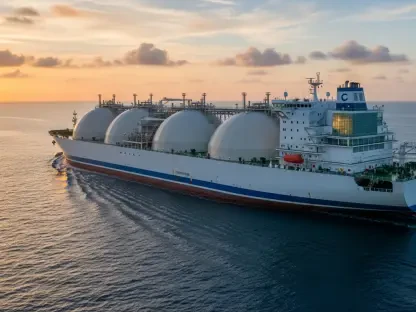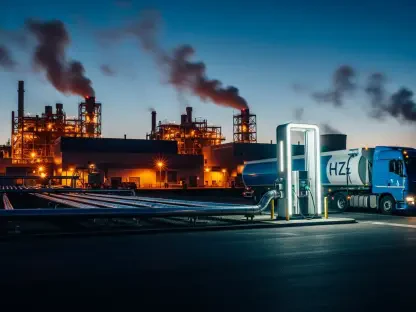In today’s interview, we sit down with Christopher Hailstone, a seasoned expert in energy management and renewable resources, to explore Indonesia’s intriguing venture into making seaweed a linchpin of its green economy. With his extensive background in grid reliability and energy security, Christopher offers invaluable insights into the country’s ambitious plans to transform seaweed into a cornerstone of sustainable energy and economic development.
Could you elaborate on why Indonesia considers seaweed a central component in building a greener economy?
Indonesia sees tremendous potential in seaweed as a renewable resource that can significantly aid in its transition to a greener economy. Seaweed is abundant and sustainable, offering not just an alternative energy source, but a chance to diversify and enhance the nation’s economic portfolio. Efforts to industrialize seaweed production align with broader goals of reducing carbon emissions and boosting energy security, underscoring its importance in Indonesia’s green agenda.
What economic potential does Indonesia expect from improving seaweed processing and industrial use?
The economic potential tied to advancing seaweed processing and industrial applications is immense. By evolving seaweed into products like biofuels, Indonesia anticipates tapping into a market space with over $12 billion in potential revenue. Beyond energy, seaweed can be used in various sectors from food and pharmaceuticals to cosmetics, thus creating new jobs and stimulating economic growth.
How is the government planning to overcome the current limited scientific research on seaweed?
To tackle the gap in scientific research, the government is fostering international research partnerships. By collaborating with renowned institutions, such as the University of California Berkeley and Beijing Genomics Institute, Indonesia aims to build a robust national seaweed research center. This will not only enhance local expertise but also accelerate innovation in seaweed applications.
Can you explain what third-generation biofuel is and why seaweed is an appealing source for it?
Third-generation biofuels refer to advanced fuels derived from algae or aquatic plants, offering more sustainable and efficient energy options than previous iterations. Seaweed, as an appealing source, doesn’t compete with land-based agriculture for space, requires minimal freshwater, and absorbs CO2 as it grows. This makes it a viable and eco-friendly choice for biofuel production.
How does Indonesia’s seaweed production compare to other major producers like the Philippines and China?
Indonesia stands out as the world’s largest tropical seaweed producer, surpassing other significant producers like the Philippines and China. Asia supplies 97% of the global seaweed demand, and Indonesia plays a pivotal role in this market with its extensive coastline and suitable ecological conditions that favor seaweed farming.
What role will international research partnerships play in enhancing Indonesia’s seaweed industry?
International partnerships are crucial for Indonesia’s seaweed aspirations. They bring together global expertise, cutting-edge technology, and shared resources, paving the way for groundbreaking research and development. These collaborations are designed to speed up scientific discoveries and expand the practical uses of seaweed, ultimately strengthening Indonesia’s position in the global market.
What progress has been made in developing a national seaweed research center?
The development of a national seaweed research center is well underway, thanks to coordinated efforts between government bodies and international partners. This center aims to consolidate research, streamline efforts, and foster innovation in seaweed technology, serving as a hub for scientists and entrepreneurs to explore and realize the full potential of seaweed-based solutions.
In what ways could seaweed contribute to reducing carbon emissions and improving energy security?
Seaweed offers a dual advantage by absorbing large amounts of CO2 during its growth, which directly contributes to reducing greenhouse gases. When converted into biofuel, it provides a renewable energy source that can decrease reliance on fossil fuels, thus enhancing energy security. Its role in carbon sequestration and as an alternative energy source underlines its importance in emission reduction strategies.
Could you detail the economic value that seaweed downstreaming might create by 2030?
Downstreaming seaweed processes—from harvesting to transforming into value-added products—could generate economic value worth up to $19 billion by 2030. This involves developing industries around seaweed-based products, thereby maximizing its revenue potential and making a significant contribution to Indonesia’s economic prosperity.
What are the plans for integrating seaweed into climate change mitigation strategies and blue economy development?
Plans for integrating seaweed into climate strategies emphasize its capacity as both a carbon sink and a renewable commodity. This fits well with broader blue economy objectives, which aim to balance marine conservation with sustainable economic activities. Seaweed can help mitigate climate impacts while supporting sectors like aquaculture and marine biotechnology.
How might a dedicated seaweed task force benefit Indonesia’s goals for a sustainable economy?
Establishing a seaweed task force would streamline initiatives, align stakeholders, and focus resources on strategic objectives. It can drive coordinated action toward sustainable seaweed exploitation, encompassing research, policy-making, and industry engagement. Such a focused approach would enhance efficiency and impact in achieving Indonesia’s sustainable economic goals.
In what other ways can seaweed drive sustainable economic growth for Indonesia?
Beyond energy, seaweed holds potential in various fields such as agriculture, nutrition, and materials science. Its applications in biodegradable plastics, as a feed supplement, or as a source of plant-based proteins can drive new industries. By cultivating these diverse uses, Indonesia can foster a wide range of sustainable economic growth opportunities.
Do you have any advice for our readers?
For those looking into green industries, consider the untapped potential of lesser-known resources like seaweed. Investing time and resources in understanding these opportunities could lead to innovative ideas that drive both ecological and economic progress. Keep an open mind to the possibilities of integrating traditional practices with cutting-edge technologies for sustainable development.









